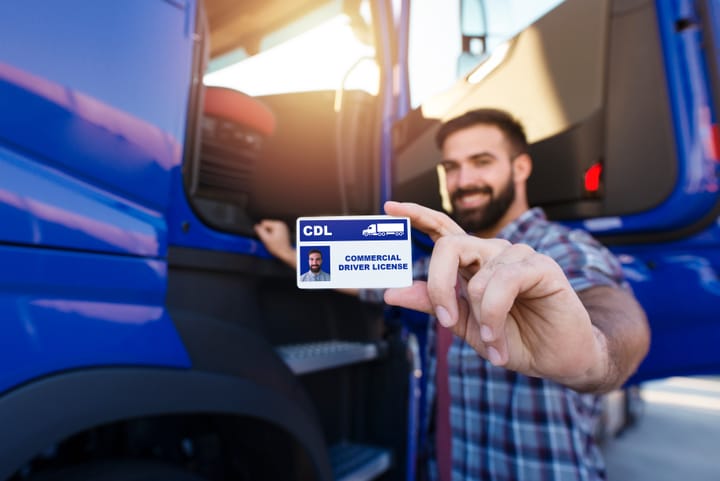How to keep a lawsuit from ending your trucking business
One attorney explains how small carriers can fight back against rising jury awards

Multi-million-dollar nuclear verdicts have been on the rise, and the solution isn't just a matter of a solid insurance plan or a good lawyer. We talk to one attorney to learn how small fleets can form a holistic risk mitigation plan that protects their business.
Meanwhile, Aurora's driverless trucks take to the Texas roads, and we've got the latest on English proficiency requirements for truckers. Plus, the driver shortage debate keeps on truckin'.

Active and informed: Ensuring nuclear verdicts don't hit your business
Massive jury awards against trucking companies aren’t just headlines, they’re creating real pressure on carriers, especially small- and mid-sized ones. Insurance premiums are spiking, reputations are on the line, and a single verdict can threaten the future of a business.
Case in point: a $462 million award against Wabash and a $141.5 million verdict against K&N Logging. So the question is: Can any of this be prevented?
We asked Rick Staggard, attorney at Farah & Farah, what’s driving the rise in nuclear verdicts—and how carriers can protect themselves before it’s too late. -Shefali Kapadia
Why do nuclear verdicts and large jury awards against trucking companies appear to be rising?
Several factors. Society is more informed than ever before. I also think the increased availability of visual evidence in trucking cases, such as dashcam footage and videos taken after crashes, plays a significant role. Finally, I attribute some of the rise to the increased pressure on the trucking industry, noting the shift from brick-and-mortar stores to individual deliveries, which has led to higher employee numbers, more vehicles on the road and increased overall demand.
Can trucking executives, especially owners of small businesses, do anything to stop or prevent the trend of nuclear verdicts?
A key strategy is to prioritize the hiring of qualified drivers who are knowledgeable about FMCSA regulations and have undergone thorough background checks. It is also crucial to maintain strict internal adherence to safety protocols, including hours-of-service regulations and vehicle maintenance, to ensure that safety issues are never compromised. Drawing insights from larger companies like Werner, which operate their own driving schools and provide extensive training, can be beneficial. Additionally, executives should be actively involved in any litigation, closely monitoring the insurance company's handling of the case and, if necessary, hiring independent counsel to ensure their interests are fully protected. Finally, trucking companies should carefully select their insurance provider, prioritizing one with a strong track record of risk assessment and claims handling, rather than simply opting for the lowest premium.
How can a fleet personally ensure they are not faced with a nuclear verdict?
Smaller and medium-sized trucking companies often have an implicit mindset of relying solely on their insurance companies in the event of an accident. This can lead to less rigorous enforcement of safety regulations and lower hiring standards. However, to truly protect themselves from nuclear verdicts, these companies must be actively involved in any litigation. This means staying informed about all developments and correspondence related to the case. Since defense lawyers are typically paid by the insurance company, whose interests may not always align with those of the trucking company, it is often advisable for the company to hire its own attorney to monitor the litigation and provide reports. By taking a proactive approach and demonstrating their seriousness, trucking companies can exert more influence on settlement negotiations and put pressure on insurers to settle within policy limits. This can be achieved through a "hammer letter," which formally demands that the insurance company pay the policy limits to avoid a potentially larger verdict. Ultimately, the active involvement of the company owner or leadership in the litigation process is crucial in mitigating the risk of nuclear verdicts.
What's your No. 1 piece of advice to small trucking companies to handle rising costs related to verdicts, such as higher insurance premiums?
Be actively engaged with their insurance company and in any litigation. Many companies are not sufficiently involved, which can lead to problems. It is crucial to thoroughly document all interactions with the insurer and remain engaged throughout the process. Insurance is a necessary first step, but it's not a complete solution to risk mitigation for their small business. Still, never be captive to a single insurance provider and always shop around annually to ensure you're getting a good balance between premium, coverage and the accessibility of the policy. Companies should focus on minimizing risk to prevent accidents in the first place. When a company faces a potentially large judgment, it is essential to understand all the angles, as the insurance company may not always act in the best interest of the insured. To the insurance company, an extra $50,000 is a rounding error on the balance sheet; to a small trucking company, $50,000 is someone’s annual salary. If a case goes to trial and the verdict exceeds policy limits, the entire business could suddenly be at risk. That’s why trucking business owners need to be actively involved and consider the best risk mitigation strategy, which all starts with a solid team, solid training, adhering to regulations and never putting an unsafe truck or driver on the road.

The importance of a five-year business plan
Between regulatory rollbacks and changing trade policy, it might feel impossible to plan for the next few weeks, yet alone the next five years. But Brian Antonellis of Fleet Advantage says fleets that have a long-term financial and procurement may actually be more agile: "A five-year plan equips organizations with the ability to adjust as needed." Long-range planning allows leaders review their strategies more often and make modifications that still align with their long-term vision and goals.
Why this matters: Being nimble isn't optional in the logistics industry. The carriers who have a solid plan while also maintaining flexibility are the ones who will, as Antonellis put it, "become the leaders of tomorrow."
Get more details at Fleet Owner.

DRIVERLESS DEBUT: Aurora AVs officially on Texas public highways
SHIPPING DELAYS: How de minimis impacts freight movement
FUEL SHORTAGE: Kansas waives carrier HOS due to emergency
MAN'S BFF: Trucker, dog reunited after brake failure crash

"The small motor carriers don't have any money. It's a pennies business. ...Fraud drives insurance cost up; it drives operating expense up." -Michael Caney, Highway
Fraud schemes and cargo theft have unfortunately become more sophisticated and commonplace. And when they occur, costs go up across the industry. Shippers push liability to the broker, and brokers raise rates to cover their own businesses. Caney, chief commercial officer of Highway, a tech company focused on carrier verification, breaks down the issues in the Talking Transports podcast here.

CVSA gives greenlight to English proficiency rules
The Commercial Vehicle Safety Alliance voted yes to place drivers out of service for violating English proficiency requirements. CVSA's board voted in favor just a few days after Trump issued an executive order on the matter. The new out-of-service rule takes effect June 25.
Why this matters: Many industry advocates say English proficiency is critical to maintain safety on the roads, allowing drivers to accurately read signs or interact with law enforcement. An estimated 10% of the driver population lacks proficiency in English, so the new rules could reduce trucking capacity. (FreightWaves)
Trucking stakeholders debate driver shortage, truck weights
The long-standing dispute over matters affecting drivers was a topic of discussion at a recent Congressional hearing. Lewie Pugh of the Owner-Operator Independent Drivers Association said the driver shortage is "widely debunked," while another person at the hearing said the shortage is real. And representatives disagreed on whether increased truck weight limits would improve efficiency or harm safety.
Why this matters: Regardless of perspective, fleet executives unanimously agree that safe working conditions are critical for drivers. Not only does it keep current employees out of harm's way, but it can improve the reputation of the driver profession, making it more appealing to prospective truckers. (Trucking Dive)

TMS makes its move into the cloud
Tech-savvy carriers and shippers have adopted transportation management systems, but many of those TMS's are tethered to physical servers hosted at a specific location. The future lies in cloud-based TMS, offering standardized data across various systems, which can lead to a more efficient and accurate workflow.
Why this matters: Tech is advancing at a rapid clip, and carriers using legacy systems that are custom-built, tethered or otherwise convoluted may fall behind. But fleet managers who use cloud-based systems also need to be aware of any security measures to take to ensure data remains safe. (CCJ Digital)

Thanks for reading today's edition! You can reach the newsletter team at editor@theinsidelane.co. We enjoy hearing from you.
Interested in advertising? Email us at newslettersales@mvfglobal.com
The Inside Lane is curated and written by Shefali Kapadia and edited by Bianca Prieto.





Comments ()